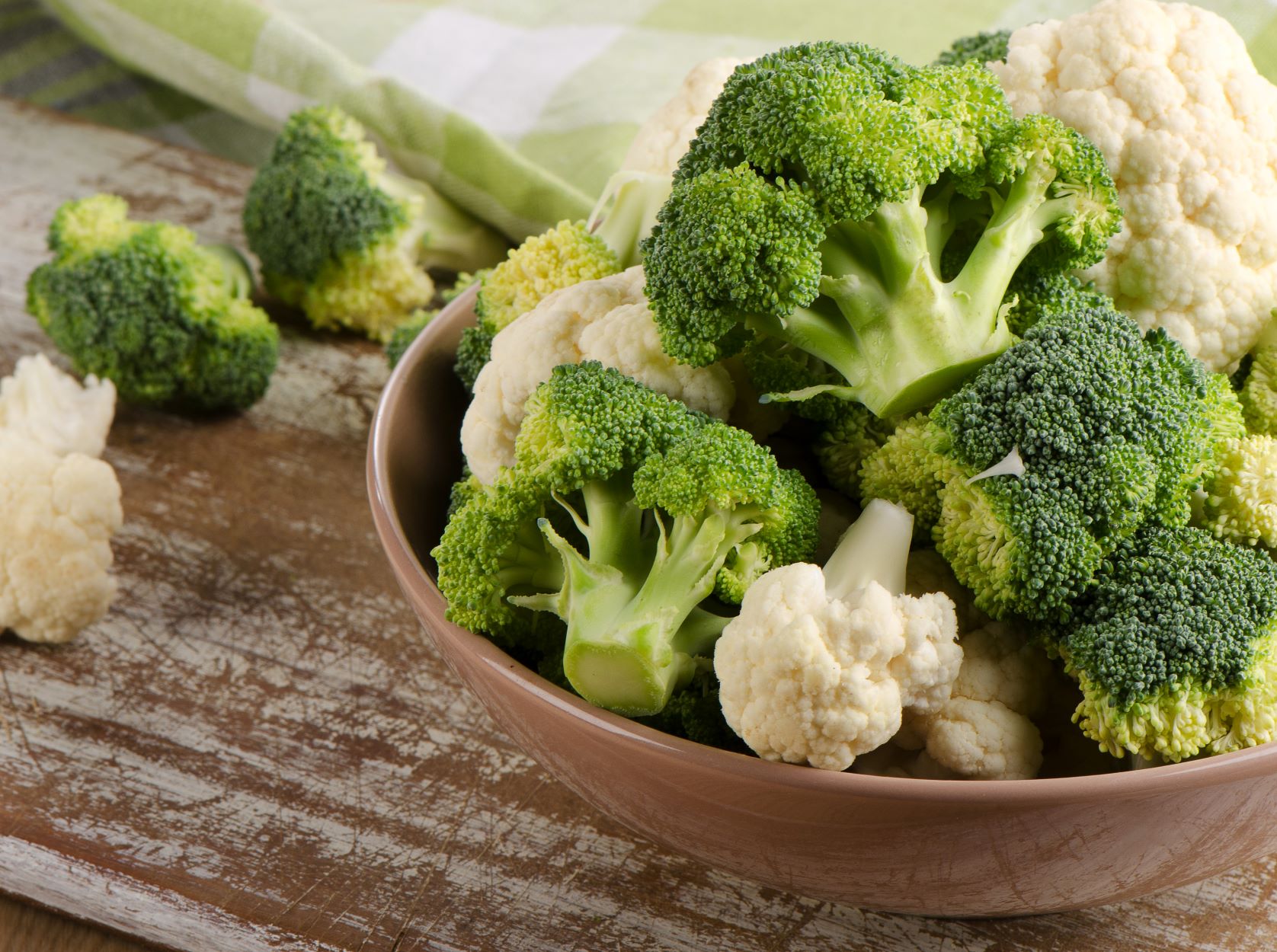Back To Top >
Steamed Winter Vegetables with Peanut Sauce
 Prep Time: 5 min
Prep Time: 5 min
Cook Time: 5 min
Level of Difficulty: Easy
Ingredients
Steamed Winter Vegetables
½ pound fresh or frozen broccoli and cauliflower (about 3 cups)
Peanut Sauce
¼ cup creamy peanut butter (see above)
2 tablespoons rice vinegar
1 tablespoon
soy sauce
1 clove garlic
¼ to 1/3 cup water
1/8 teaspoon cayenne pepper or red pepper flakes
Optional
¼ to ½ teaspoon grated fresh ginger root
Method
- If using fresh vegetables, wash and cut into bite-sized pieces of florets and stems. Or, the vegetables can be trimmed and cooked in large clusters. Cook by steaming in a large pot or microwave until the broccoli is a vibrant green and the vegetables
are tender. To prevent the vegetables from overcooking and losing the bright green color, place them in a colander and quickly rinse with ice-cold water immediately after cooking.
- To make sauce, mix all ingredients except water together in a small saucepan. Pour in ¼ cup of water and mix with a wire whisk. Add additional water, if needed, for the desired texture. Heat until warm.
- Pour sauce over vegetables or serve on the side.
Winter vegetables include the cruciferous vegetables that are known to reduce risk of cancer. Some of the familiar crucifers are broccoli, cabbage, bok choy, kale, collards, cauliflower and brussels sprouts. Spinach is another cool-weather crop and a great source of iron, magnesium, vitamin C and plant sources of vitamin A called carotenoids that are powerful antioxidants. The winter squashes (butternut, acorn, turban, kabocha, kuri and the like) are also good sources of vitamin A, but they are starchy vegetables with 15 grams of carbohydrate per half-cup serving rather than 5 grams like many less-starchy vegetables. For this recipe, you can use any mixture of these winter vegetables.
Peanut sauce is a good way to entice many picky eaters to eat their vegetables, and it's a nice change from traditional cheese or white sauces. Peanut sauce can easily be made into peanut dressing and peanut dip by mixing more liquid such as broth,
cooking liquid from vegetables, lemon or lime juice, coconut milk, vinegar, soy sauce and water. The peanut sauce can be stored in the refrigerator for up to two weeks.
About Peanut Butter:
Choose peanut butter made from nothing but peanuts, with or without added salt (sometimes labeled “natural”). Peanut butter is best if it does not contain any added sugars and no hydrogenated fats. Lower-fat peanut butter is available, but
it contains artificial additives.
Each tablespoon of peanut butter has 94 calories, 4 grams of protein, 3 grams of carbohydrate, 1.5 grams of fiber and 8 grams of fat; only 1.5 grams of that is saturated fat. The fat in peanut butter is a healthier unsaturated plant fat, primarily monounsaturated.
Peanut butter also contains significant sources of niacin, a B vitamin, plus vitamin E and magnesium.
Nutrition at a Glance
(per serving)
Calories: 110
Total fat: 8g
Saturated fat: 1.5g
Total carbohydrate: 6g
Dietary fiber: 2g
Protein: 6g